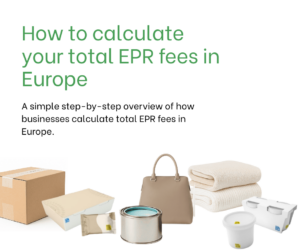Packaging labeling requirements in Spain
Packaging labeling requirements in Spain
Why is it necessary to label goods with a recycling symbol?
Correctly sorting packaging waste in the home is crucial for recycling. End consumers often doubt which container to put each package or part in. As a result, Spanish legislation has introduced approved rules that clearly explain where and what information should be indicated on the packaging itself to help consumers sort waste correctly in the future.
The recycling symbol for Spain is a specific mark with a yellow, green, blue, or brown container, depending on the type of packaging produced.

Using the Symbol in the market
Depending on the space and size available on the label or packaging, Spanish regulations advise the use of two versions of the symbol:


The option of bilingual interpretation of designations is also allowed.
Spanish / English

Spanish / French

Spanish / Italian

Spanish / Portuguese

Use of the symbol according to the type of packaging
The symbol for recyclable packaging should be placed in the yellow container
This mark should be used on household plastic, metal, and cardboard packaging that should be put into a separate yellow collection bin.
For example:
- Plastic containers, soft drinks bottles, mineral water bottles, detergents, softeners, shopping bags, white cork or porexpan trays, yogurt jars, etc.
- Metal containers such as tin and aluminum soft drink cans, beer cans, canned food, aluminum trays, etc.
- Brick containers for milk, juices, soups, and foodstuffs such as sugar and beans.
- Half paper and half plastic bread bags.

The symbol for recyclable packaging that should be placed in the blue container
This symbol is used for household paper and/or cardboard packaging.
For example:
- Waste paper – office paper, magazines or newspapers, brochures, comic books, advertising leaflets.
- Recycled cardboard – cardboard boxes, cereal boxes, etc. (not milk and juice, which belong in the yellow bin).
Waste that is not allowed to be put in the blue bin is dirty paper (toilet paper, kitchen paper, napkins), copy paper, and plastic paper.

The symbol for recyclable packaging that should be placed in the brown container
This label must be used on compostable packaging. Packaging is considered compostable if it complies with the UNE EN 13432:2001 standard for compostability, i.e., it can be almost wholly decomposed with organic matter.

The symbol for recyclable packaging that should be placed in the green container
This marking should be used for glass containers that are to be put in the green separate collection bin. For example:
Various types of glass bottles (wine, spirits…) or jars (cosmetics, cologne, jam).

Often, the packaging is composed of more than one material and contains several types of materials that fit different containers. In such cases, it is necessary to determine whether the end-user can easily separate these materials.
The Spanish labeling regulations state that different containers will be indicated if the materials can be easily separated. For this purpose, using the appropriate symbol on each packaging element is recommended whenever possible.
Below are examples of how this can be implemented. If you have any specific questions, please contact our team, and they will gladly advise you.



Design
The recycling symbol should be highly visible and easily recognisable to users. Its size should be sufficient to maintain the clarity of the message. A size of 10 millimeters is recommended.
When displayed against a photographic background, the contrast should be as high as possible to make the recycling symbol easy to read. In some cases, such images are prohibited and should be in other easily accessible locations.


Regulatory Framework and EPR
Spain’s packaging and labeling regulations are closely tied to its Extended Producer Responsibility (EPR) framework. EPR mandates that producers take responsibility for the environmental impact of their products, including proper labeling and waste management practices.
Learn how EPR impacts packaging compliance in our comprehensive EPR guide for Spain.



